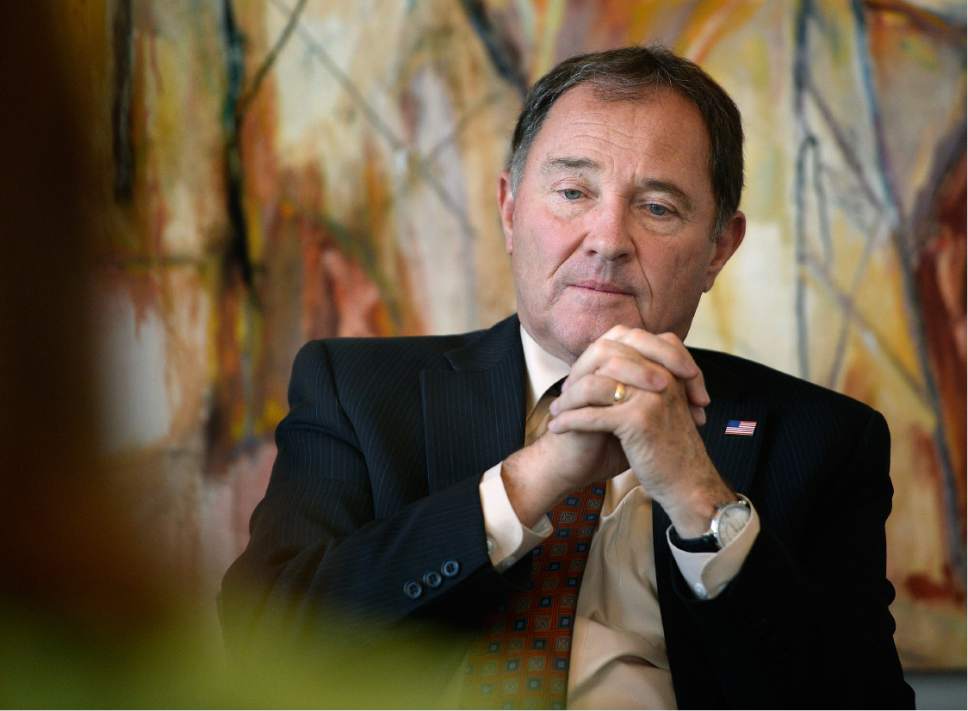This is an archived article that was published on sltrib.com in 2017, and information in the article may be outdated. It is provided only for personal research purposes and may not be reprinted.
Gov. Gary Herbert's decision to sign House Bill 65 is a head scratcher.
The bill prohibits the state from putting any limits on wood fires used to cook food. It ensures that anyone living next to a rib or burger joint will literally just have to suck up the particulates, no matter how bad the air quality gets.
Kids may be prevented from going to recess on bad air days, and those with respiratory illness may face premature deaths, but no one will go without the thrill of the grill.
The governor signed it despite Utah's decades-long leadership in recognizing (and regulating) the harm caused by second-hand smoke.
He signed it despite his own Air Quality Board recommending against signing it. In an 8-0 vote last month, the board said the bill "would directly limit the board's ability to approve future air-quality regulation and enforce existing regulations" and "would prevent the board from developing sensible and science-based rules."
He signed it despite his own acknowledgement — the day before signing — that the bill needs "some additional work with the sponsor and others involved, the private sector as well as the Air Quality Board, to get to the right place and make sure our air quality needs are being accommodated by our ability to make decisions."
And he signed it despite having absolutely no urgency. There are no limits on wood-burning chefs now. This bill just says that there never will be.
And that's unfortunate because the soup bowl that is the Wasatch Front is about to be reclassified by the federal government as an area of "serious" non-attainment for particulates. As a result, Utah will have to come up with more ways to control them, and HB65 just took one possible area of control off the table.
Like the 0.05 percent blood alcohol limit bill, the governor signed off on something he admits won't work in its current form. That makes no sense, particularly since there isn't anyone currently being prevented from grilling or smoking. What's the hurry to sign an imperfect bill that changes no current regulation? Why doesn't he veto it, relay his concerns to legislators and let them come back with something better?
When the governor signs bills that still need more work, he loses his leverage with the legislative branch. If they don't like his suggestions, they can ignore them since he has already signed off.
Who is the real barbecue king around here?



